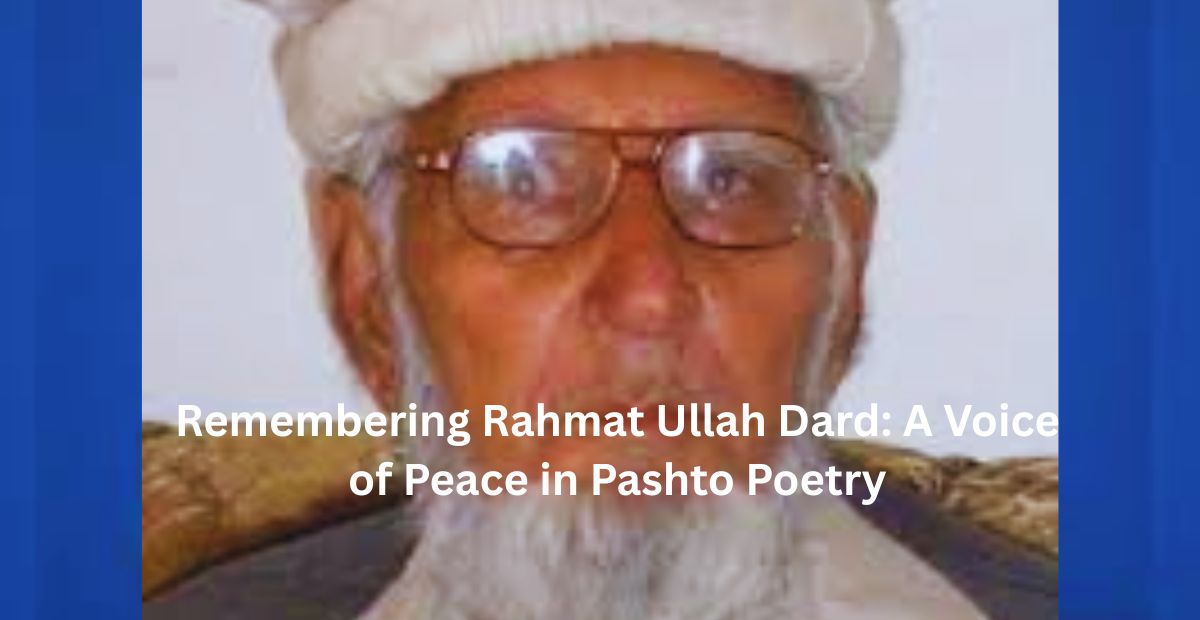Rahmat Ullah Dard (1937–2016) remains one of the most celebrated figures in Pashto literature. Born on 4 December 1937 in British India, and later residing in Lakki Marwat, Khyber Pakhtunkhwa, Pakistan, Dard dedicated his life to enriching the literary world with his soulful poetry. He passed away on 31 August 2016 at the age of 82, leaving behind a powerful legacy of linguistic and cultural contributions.
A Life Devoted to Literature
Dard was not only a renowned Pashto-language ghazal poet but also a respected Professor of Urdu Literature. His deep understanding of both Pashto and Urdu languages allowed him to bridge literary traditions and touch the hearts of diverse readers.
Throughout his life, Dard wrote poetry that resonated with themes of love, loyalty, peace, and human emotion. His contributions to Pashto poetry were regarded as extraordinary, and he is remembered for bringing a unique voice to the literary world.
Family and Personal Life
Dard was a family man who had five daughters—all alive—and one son, who sadly passed away in the 1990s. Despite personal loss, Dard continued to produce literary works that inspired and influenced generations.
Literary Contributions
Rahmat Ullah Dard’s poetic works are revered for their depth, lyrical quality, and emotional richness. His notable books include:
- Ghazal
- Dard
- Muntakhib Dard
- Wafa
- Noon na tar Noon
- Hagha Stargy che Ghagegi
- Wyal Sarhi
All of these books are also available as a collective work titled “Da Dard Kulyat”, which compiles his finest poetry for literary enthusiasts and scholars alike.
Scholarly Recognition
Dard’s poetry has not only been admired by readers but also studied by academics. Ahmed Jan Marwat authored a comparative study on the poetry of Rahmat Ullah Dard and Abdur Rahim Majzoob, highlighting the thematic and stylistic richness in their writings. Additionally, Said Ul Amin Ahsan Kheshgi penned a detailed article reflecting on Dard’s life and poetic legacy, showcasing the depth of his intellectual and literary contributions.
A Poet of Peace
At the time of his passing, Dard was remembered fondly by the literary community. Reputable publications, including The Express Tribune and Dawn, honored his memory, describing him as a “poet of peace.” His gentle yet profound verses often carried messages of harmony, making him a literary figure who transcended cultural and linguistic barriers.
Legacy That Lives On
Although Rahmat Ullah Dard is no longer with us, his poetry continues to live in the hearts of readers across Pakistan and beyond. His influence on Pashto literature remains unmatched, and his commitment to promoting peace through poetry ensures that his voice will never fade.
Conclusion
Rahmat Ullah Dard was not just a poet—he was a visionary who used language as a tool to connect souls. Through his powerful ghazals and his academic contributions, he left an everlasting mark on South Asian literature. As new generations turn to his work, Dard’s poetic light continues to shine brightly in the world of Pashto and Urdu literature.
